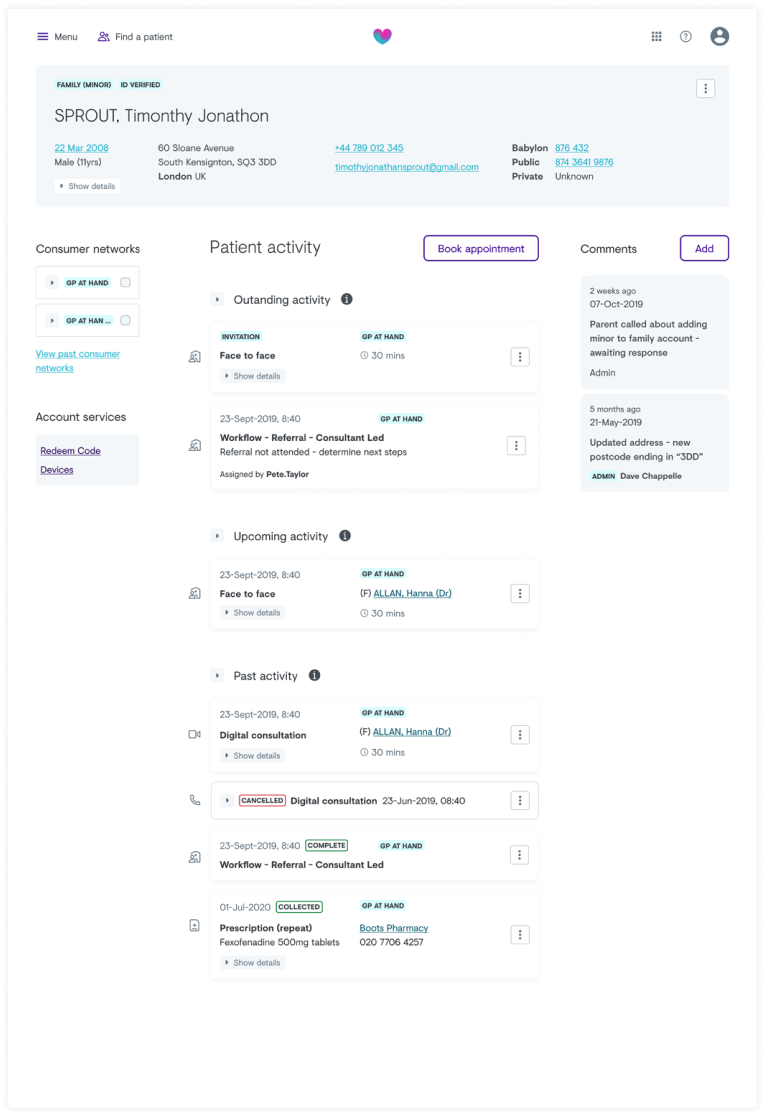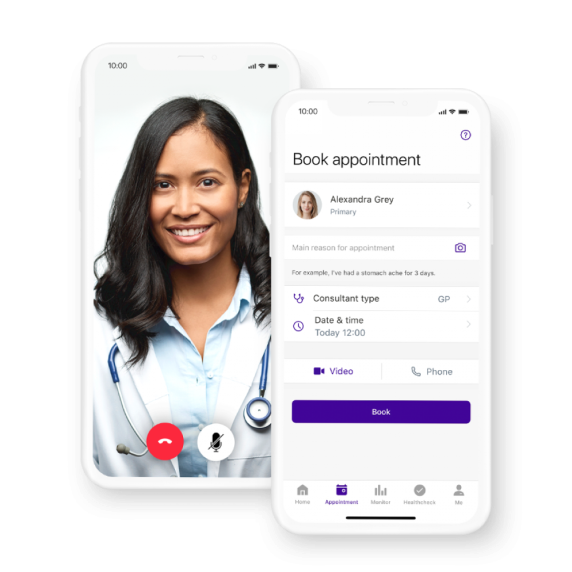Digital first consultations are an evolving practice with many challenges in making them safe and effective. Within a narrow consultation window (just 10 mins in the UK), patient’s need to feel supported, listened to, and helped. Clinicians need to understand patient’s problems to help formulate a diagnosis, create a care plan, and record the encounter in the digital health record.
What is Clinical Care Experience
The Babylon clinical care experience (CCE) is an umbrella for a number of services that delivers Babylon’s Telehealth platform. Our challenge was creating a cohesive experience that helped both clinicians and patients connect so that great care is delivered. This was a multi-platform, spanning many product teams, and different parts of the organisation. Patients accessed Babylon services through the Babylon app (IOS and Android), with Clinicians and Support staff using the clinical and patient web portals to run and manage appointments.
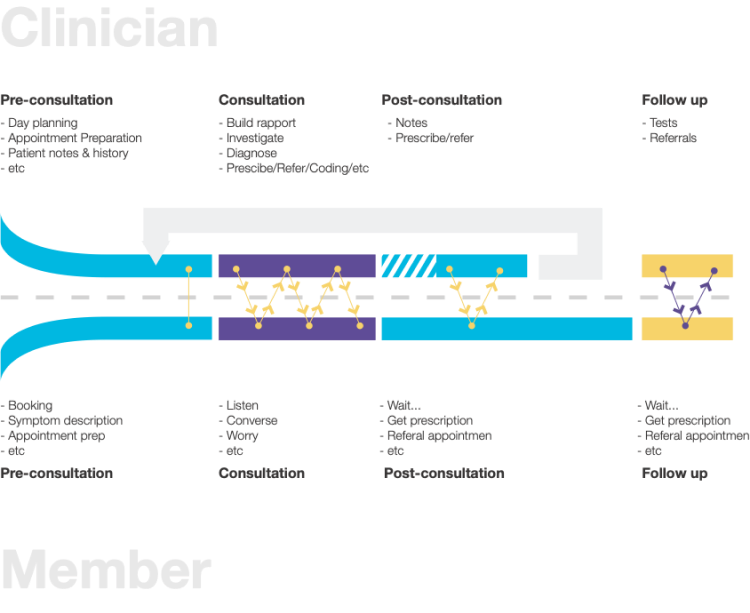
Pre-consultation
A key part of the Babylon patient experience was improving how we can prepare patients for their consultation in order to maximise patient benefits and clinician utilisation. Traditionally, GP surgeries used fixed-time slots to book appointments, usually 10 minutes. This is an inefficient use of a clinicians time. If a routine appointment runs early, then time can’t be made up by seeing patients earlier. Likewise, if complex cases runs over, then GP’s feel acutely pressured that they are letting their other patients down.
Improving this, with the aim of maximising the value between clinicians and patients helped the team focus on improved utilisation of GP’s, smart ways to direct appointments to other clinicians such as nurse practitioners or pharmacists, and help prepare patients for their consultation through better pre-recording of symptoms and issues.
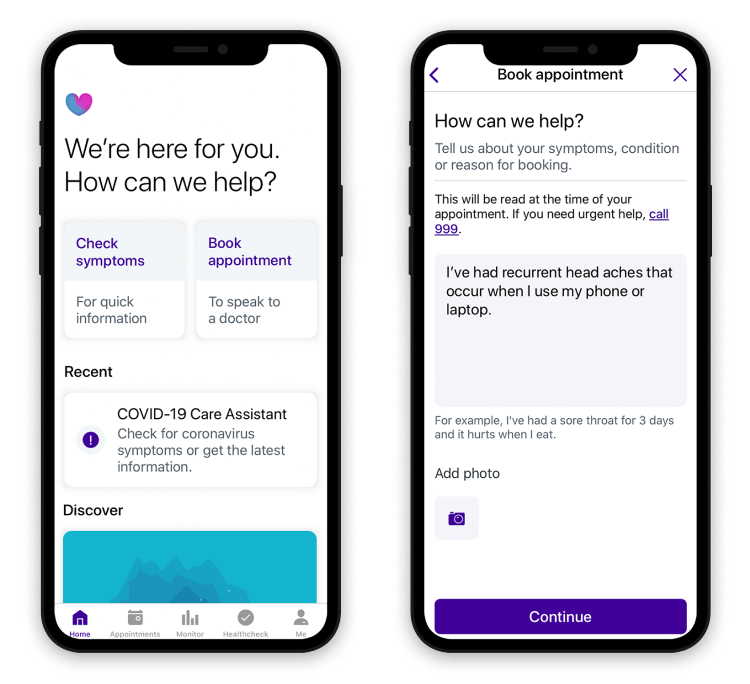
Consultation
Health services, where clinicians don’t regularly see the same patients, struggle with continuity of care. A better understanding patients past medical history and their frequent interactions with the health system (from diagnosis to prescriptions), is crucial for Babylon clinician's to work safely and effectively. Having to spend time re-taking complex medical histories, rather than having information at a glance, helps improve the quality of the interaction between patient and clinician.
Historically, this information has been recorded through the consultation record. To find out a particular prescription or diagnosis, or clinical notes, clinicians were forced to trawl through a complex series of medical encounters to some unknown date in the past. Pulling this key information outside of the consultation framework quickly gave clinicians the greater visibility of a patients health.
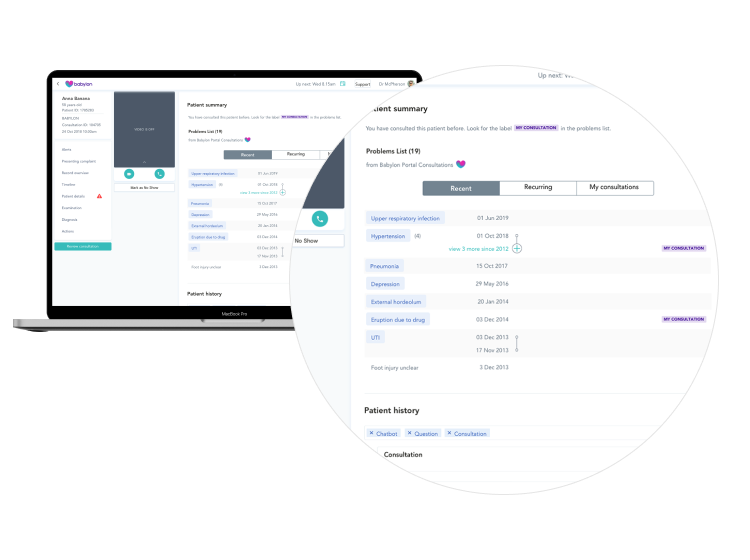
Post-consultation
Any post-consultation journey was supported by the clinical operations team. They are a key extension of Babylons care team, providing support for patients beyond the short consultation window. Their work ranges from organising prescriptions to arranging follow up appointments and chasing referrals. Tools that support them to support Babylons members is a key part of Baylon experience. Often these tools are neglected, but for any service to succeed the customer experience needs to extend into tools staff use to help customers.
Being able to see a patients care history, their interactions with various health systems and the status and progress of tests or referrals was key in how they helped Babylon members. Our research process, working closely with MOP team members to help us create a tool that was the right fit for the way they did their work.
